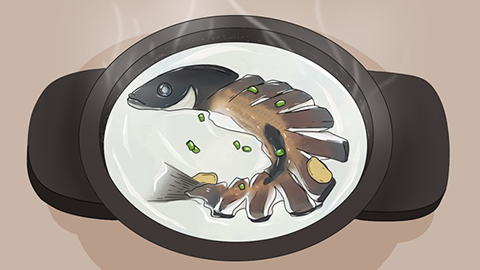Can I drink black fish soup after rhinoplasty?
Generally speaking, it is acceptable to consume black fish soup in moderation after rhinoplasty. Rhinoplasty involves implanting prosthetics, autologous cartilage, or injecting fillers into the nose to alter the nasal bone and soft tissue framework, thereby increasing nasal height and improving nasal contour. The usual reference price for rhinoplasty is 3,000-8,000 yuan per session. Improvement is typically noticeable 1-3 months after the procedure, although symptoms such as redness, swelling, and pain may occur. A detailed analysis is as follows:

Black fish soup is rich in high-quality protein, unsaturated fatty acids, various vitamins, and minerals such as calcium, phosphorus, and potassium, offering high nutritional value. The high-quality protein serves as an essential building block for tissue repair and regeneration. Consuming moderate amounts of black fish soup after rhinoplasty can provide sufficient protein to promote healing of nasal tissues, enhance the body's resistance, and help prevent complications such as infection. Unsaturated fatty acids offer certain protective benefits for the cardiovascular system, aiding overall postoperative recovery. Additionally, black fish soup is relatively light and easy to digest, placing minimal burden on the gastrointestinal tract and having no adverse effect on nasal recovery.
It is recommended to visit a正规 hospital and follow the guidance of professional doctors when performing the above procedures to ensure the safety and reliability of the surgery. After surgery, it is important to protect the nose, avoid external impacts or squeezing, to prevent implant displacement or affect the nasal shape. Keep the nose clean and dry, avoid contact with water, and take medication and change dressings as instructed by your doctor.







